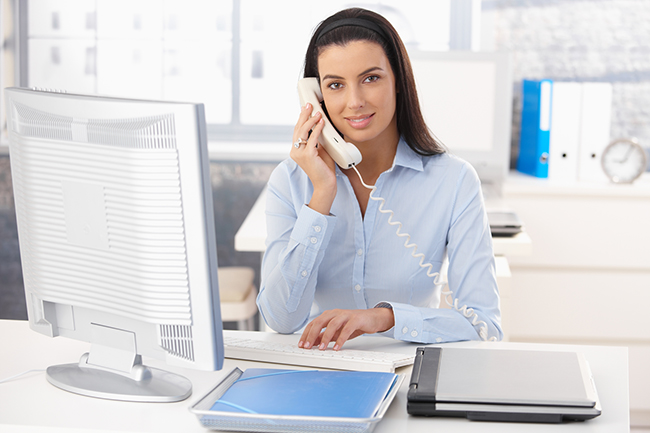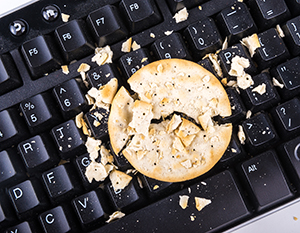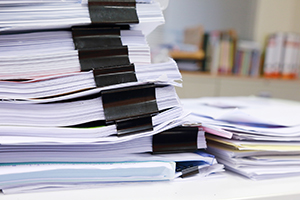7 WORK HABITS YOU MUST KNOW

By Leigh Stringer
"It’s not that we’re bad people, or that we aren’t working hard,” says Leigh Stringer, “The problem is that what our minds and bodies need at a basic level is in conflict with our work style. We are so focused on work, on getting things done, that we’ve changed the way we eat, move and sleep in a way that is counterproductive.” Putting yourself and your health first isn’t selfish, it’s exactly what we all need to be more productive and to make our employer thrive.
So what are some of those unhealthy habits that we need to break? New York Lifestyles recently met with Leigh Stringer, who offers up a comprehensive list of what we should be doing at the workplace.
SITTING IS NOT THE ONLY WAY
I know, you’ve read the news and have heard that sitting for extended periods of time is bad for your health. The issue isn’t that we sit, the issue is that many of us sit and work without standing or walking for many hours at a time. Walking on a treadmill desk for 8 hours a day is not the answer either (at least for most of us).
Instead
• Stand up every 30 minutes and walk around every hour and a half, even if it’s just for a few moments.
• Find surfaces around your workplace that are bar-height and stand and work for a few minutes each day.
• Take phone calls, watch presentations, read or perform other activities while standing up or even walking if it makes sense for the task at hand.
Performing these in the workplace not only improves cardio-metabolic health, but it will also prevent conditions like deep vein thrombosis. According to a recent study, reactive thinking develops all day indoors….

EATING AT YOUR DESK?
Mindless eating (eating while your head is focused on something else) typically results in eating faster and consuming more calories than if you were seated at a dining table and paying attention to what you eat. Even worse than eating at your desk? Eating take-out food at your desk! Americans eat in a restaurant five times a week, according to a recent survey conducted by Living Social.
Instead
• Bring your snacks and lunch.
• Eat far from your primary workspace. Keep food and drinks away from your keyboard tray!
• Invite your colleagues to have lunch with you and use eating time to connect face-to-face. If you work remotely, host a “virtual lunch” via Skype!
You will automatically make better choices when you are eating without multitasking because you are more aware of what you are putting in your mouth. If you can find a pleasant environment to eat in with a colleague, all the better.

CLEAN UP TIME
Paper on your desk, especially if it has been sitting there a while, is likely full of dust and dust mites, which for many people can trigger serious allergies and asthma. Do you need all that paper in your workspace? Interestingly, Xerox did a study looking at how often we use the paper by our desk. They estimated that as many as two out of every five pages printed in the office are for what it calls “daily” use, such as e-mails, web pages, and reference materials that have been printed for a single viewing. I’m willing to bet that now, a few years later, the amount of paper we need to keep lying around is much less.
Instead
• File paperwork and put in place a system for removing paper or moving paper off-site that you don’t need access to on a regular basis.
• Put in place a good system for scanning and digital filing of documents, so that you know where to find things later. A trusted electronic system can help reduce the need for a paper back-up.
No dust mites and a cleaner desk can improve air quality. Also, removing paper can give the appearance of having more space. Big piles of paper (and all the furniture that stores it) eat into the workspace and make the workspace feel more crowded. This feeling of being “crowded in” increases stress and decreases our satisfaction with our work area.
TAKE THAT VACATION
A survey for the career website Glassdoor found that U.S. employees use only 51 percent of their eligible paid vacation time and paid time off, according to a recent survey of 2,300 workers who receive paid vacation. Even more frightening, 61 percent of Americans work while they are on vacation, despite complaints from family members, one-in-four report being contacted by a colleague about a work-related matter while taking time off, while one-in-five have been approached by their boss.
Instead
• Plan your vacations, take them, and enjoy yourself. Give yourself permission to unplug.
You need it to refresh and revitalize to be more effective. And, your family will love you for it. According to John De Graff , who made a documentary about overworked Americans called Running Out of Time, it has been found that there is a high cost to not taking a vacation. “Women who don’t take regular vacations are anywhere from two to eight times more likely to suffer from depression, and have a 50 percent higher chance of heart disease,” he says. “For men, the risk of death from a heart attack goes up a third.”
RECOVER AT HOME
When you come into the workplace sick, you are very likely spreading disease to colleagues. As tempting as it is for you to “power through” and minimize sick days, the overall health risk is not worth it.
Instead
• Stay home!
Researchers from the University of Arizona in Tucson, placed a tracer virus on commonly touched objects such as a doorknob or tabletop in the work place. At multiple time intervals, the researchers sampled a range of surfaces including light switches, countertops, sink tap handles, and push buttons. They found that between 40 and 60 percent of the surfaces were contaminated within two to four hours. This may be a reason to adopt a “work from home” policy if you are looking for one. Beyond that, everyone should frequently wash their hands.

GET SOME SUNSHINE
A good portion of our global workforce spends about 90 percent of each day indoors, which essentially puts workers in a state of “light deficiency” and it negatively impacts our sleep cycle.
Instead
• Get outside, preferably earlier in the day, for as long as you can.
We need more intense light to reset our circadian rhythm, which helps us sleep. Some sleep experts recommend being outside as much as two hours a day. But even going outside for 30-60 minutes during the day—say over a lunch break will provide roughly 80 percent of what you need to “anchor” your circadian rhythm.
HEALTH COMES FIRST
If you aren’t healthy, you can’t get anything done and you won’t be there for your colleagues, friends, and family when they need you. Especially if you are affected by chronic health issues. A global survey of business executives conducted by the World Economic Forum and the Harvard School of Public Health from 2009 to 2011 identified non-communicable diseases as one of the leading threats to global economic growth.
Instead
• Make your health a priority, and start by building time in your calendar to work out, to relax or do something that gives you energy and sparks your personal passion.
Healthy workers are more productive. Being our emotional, physical and mental best is foundational to doing our best work.

Leigh Stringer is Senior Workplace Expert for EYP Architecture & Engineering and is researching employee health and productivity in conjunction with the Harvard School of Public Health, the Center for Active Design, and other organizations. She is the author of The Healthy Workplace: How to Improve the Well-Being of Your Employees-and Boost Your Company’s Bottom Line (AMACOM). You may visit her at leighstringer.com.



